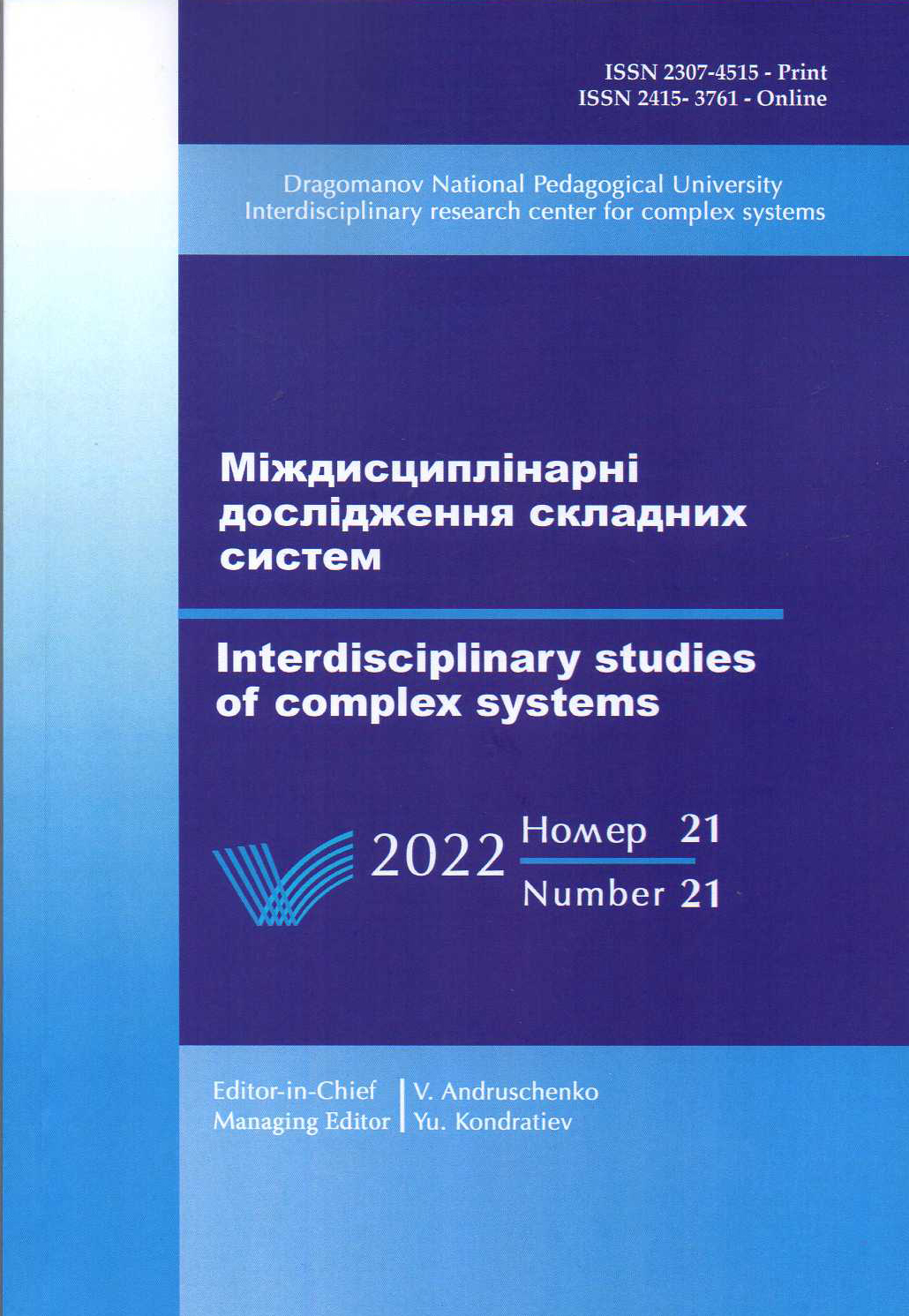phenomenon of science in the challenges of transdisciplinarity: the search for paradigmatic responses to social turbulence
DOI:
https://doi.org/10.31392/iscs.2022.21.019Ключові слова:
history of science, transdisciplinarity, interdisciplinarity, phenomenon of science, paradigm, social turbulenceАнотація
The article discusses the features of the transdisciplinarity of science in actively developing areas of science. The author emphasizes the dīerence between transdisciplinarity and interdisciplinarity and polydisciplinarity. In conditions of social turbulence, when the development of science and technology is ahead of changes in society, it becomes necessary to compensate for the lag with paradigm decisions. Since the Enlightenment and the positive science of Auguste Comte, science as a special kind of human intellectual activity aimed at achieving new knowledge and its dissemination has undergone signiŤcant changes. The subject of research has become so reduced that instead of clear boundaries between sciences, points of intersection appear. Future research, cognitive science, artiŤcial intelligence research, and others are considered as actively developing modern transdisciplinary studies. Jean Piaget’s contribution to the development of semantics and pragmatics of the term “transdisciplinarity” is demonstrated. In 1998, UNESCO oыcially documented the importance of addressing the issue of transdisciplinarity. In 2013, in the United States, the American Academy of Science and Culture, ARISE-2 published a report, which testiŤed to the necessity to make a transition in American science from interdisciplinarity to transdisciplinarity.
Посилання
ARISE II. Advancing Research In Science and Engineering: The Role of Academia, Industry, and Government in the 21st Centry. 2013. Unleashing America’s Research & Innovation Enterprise. Cambridge, MA: American academy of arts and sciences. https://www.amacad.org/publication/arise-ii-unleashing-americas-research-innovation-enterprise.
Aristotle in 23 Volumes. Vols. 17, 18, translated by Hugh Tredennick. Cambridge, MA: Harvard University Press.
Bergson, H. 1911. Creative Evolution, translated by Arthur Mitchell. New York, NY: Henry Holt and Company.
Burtt, E. A. 2003. The Metaphysical Foundations of Modern Science. Mineola, NY: Dover Publications.
Cahan, D. 2003. From natural philosophy to the sciences: writing the history of nineteenth-century science. Chicago, IL: University of Chicago Press.
Harper, D. (n.d.). 2022. Etymology of science. Online Etymology Dictionary. Retrieved October 16, from https://www.etymonline.com/word/science.
Harper, D. (n.d.). 2022. Etymology of technology. Online Etymology Dictionary. Retrieved October 17, https://www.etymonline.com/word/technology.
Heidegger, M. 1993. “The Question Concerning Technology,” in Basic Writings, ed. David Farrell Krell, 2nd revised and expanded ed. San Francisco, CA: Harper Collins.
Knight, D. M. 1986. The Age of Science: The ScientiŤc World View in the Nineteenth Century. New York, NY: Basil Blackwell.
Morin, E. 1999. La tкte bien faite: repenser la rйforme, rйformer la pensйe. Paris: Ed. du Seuil.
Nye, M. J. 2003. The Cambridge History of Science. Volume 5: The Modern Physical and Mathematical Sciences. Cambridge: Cambridge University Press.
Piaget, J. 1972. L’йpistйmologie des relations interdisciplinaires. L’interdisciplinaritй: problиmes d’enseignement et de recherche dans les universitйs. Paris: OCDE.
Rigolot, C. 2020. Transdisciplinarity as a discipline and a way of being: complementarities and creative tensions. Humanit Soc Sci Commun, 7, 100. https://doi.org/10.1057/s41599-020-00598-5.
Rossi, P. 2001. The Birth of Modern Science. Oxford: Blackwell.
Schar", R. C. & Stone, D. A. (2022). Transdisciplinarity Without Method: On Being Interdisciplinary in a Technoscienti{c World. Human Studies, 45, 1-25. https://doi.org/10.1007/s10746-021-09616-0.
Trist, E. L. 1981. The evolution of socio-technical systems: a conceptual framework and an action research program. Toronto: Ontario Ministry of Labour Ontario Quality of Working Life Centre.
UNESCO Division of Philosophy and Ethics. 1998. Stimulating Synergies, Integrating Knowledge. International Symposium on Transdisciplinarity, Val-d’Oise, France. https://unesdoc.unesco.org/ark:/48223/pf0000114694.
##submission.downloads##
Опубліковано
Номер
Розділ
Ліцензія
Автори, які публікуються у цьому журналі, погоджуються з наступними умовами:- Автори залишають за собою право на авторство своєї роботи та передають журналу право першої публікації цієї роботи на умовах ліцензії Creative Commons Attribution License, котра дозволяє іншим особам вільно розповсюджувати опубліковану роботу з обов'язковим посиланням на авторів оригінальної роботи та першу публікацію роботи у цьому журналі.
- Автори мають право укладати самостійні додаткові угоди щодо неексклюзивного розповсюдження роботи у тому вигляді, в якому вона була опублікована цим журналом (наприклад, розміщувати роботу в електронному сховищі установи або публікувати у складі монографії), за умови збереження посилання на першу публікацію роботи у цьому журналі.
- Політика журналу дозволяє і заохочує розміщення авторами в мережі Інтернет (наприклад, у сховищах установ або на особистих веб-сайтах) рукопису роботи, як до подання цього рукопису до редакції, так і під час його редакційного опрацювання, оскільки це сприяє виникненню продуктивної наукової дискусії та позитивно позначається на оперативності та динаміці цитування опублікованої роботи (див. The Effect of Open Access).











